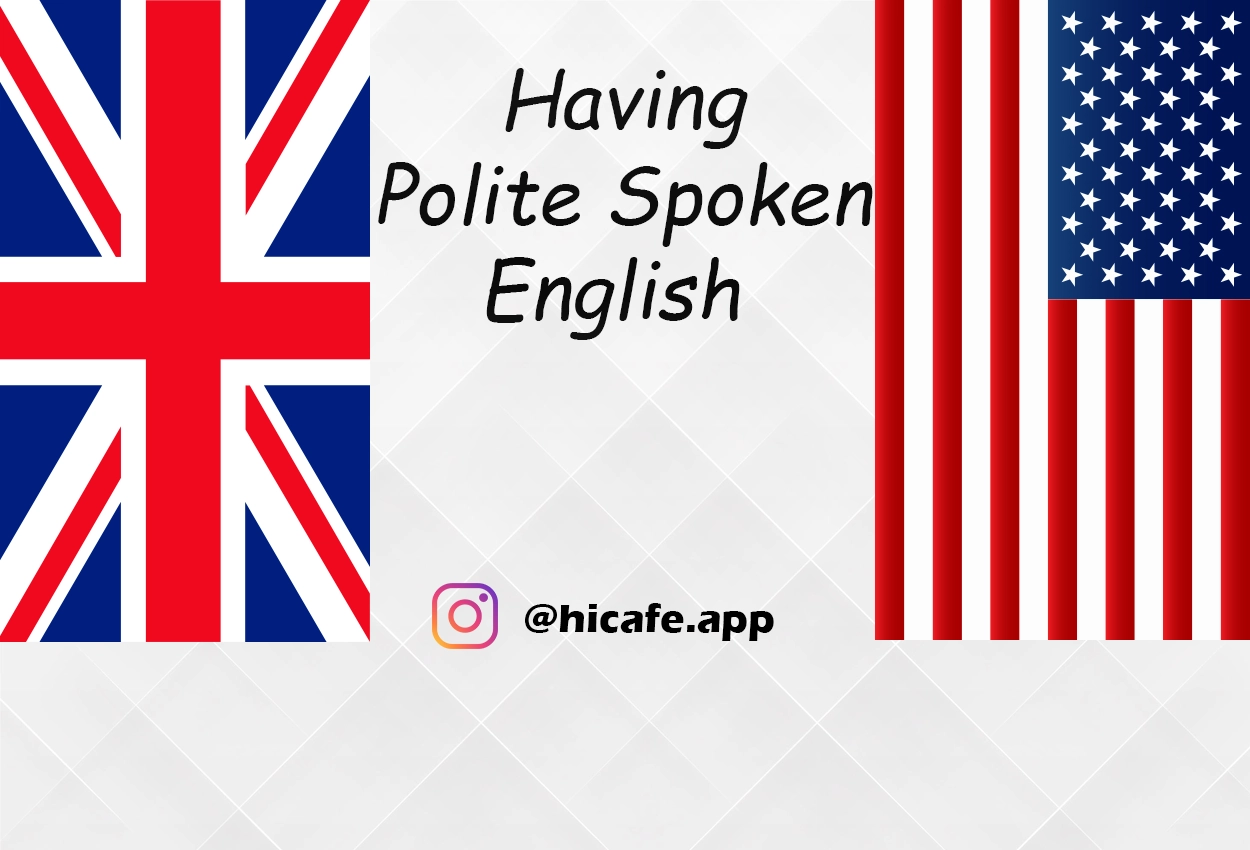
When speaking English, it is important to be polite. Using phrases like I would like instead of “I want” can make a significant difference in how you are understood. Politeness also involves using words like please, “thank you,” and “excuse me” to make sure you will have respectful interactions. This lesson teaches you how to have a polite conversation in English
Previous Conversation Tip Lesson
How to Talk Politely in English
“Would like” is the polite way of saying “I want”
For example:
“I want to reserve a table ” is impolite because “I want” sounds selfish and arrogant.
“I would like to book a table, please” is polite and friendly.
Grammar rules for would like
“I would like” is followed by an infinitive verb or a noun.
“I would like to book a room for Monday.” (infinitive verb “to book ”.)
“I would like a single room for Monday.” (noun “a single room”.)
Because “would” is a modal verb, it doesn’t change for he / she “third-person singular”.
I would like
You would like
He / she would like
We would like
They would like
There is no “s” on he / she / it.
You can abbreviate the “would” to ‘d:
I’d like
You’d like
He’d like
She’d like
We’d like
They’d like
Don’t abbreviate “would” to “‘d” in the question or negative forms.
“I wouldn’t like” (not “I’dn’t like”.)
To form the negative, add “not” or the abbreviation “n’t” to “would”:
I would not like / I wouldn’t like
You would not like / You wouldn’t like
He / she would not like / He wouldn’t like
We would not like / We wouldn’t like
They would not like / They wouldn’t like
To form the question, change the subject-verb word order to verb-subject:
Would I like…?
Would you like …?
Would he / she like …?
Would we like …?
Would they like …?
The short reply is
Yes, I / you / he / she / we /they would.
No, I / you / he / she / we / they wouldn’t.
To learn more on Would Like grammar and do quizzes, visit our English Grammar Would Like with examples lesson.
Other ways to be polite in English
Say “good morning”, “good afternoon”, “hello” etc before you ask for something.
“Good afternoon! I’d like to order a vegetarian pizza, please.”
“Hello! Can I have a menu and some water, please?”
Use polite words like “please”, “thank you” and “excuse me”
“Can you tell me the way to the police station, please?”
Say “thank you” or “thanks” when someone does something for you.
“Hello! I’d like to buy a return ticket, please.”
“Here you are.”
“Thank you.”
Say “excuse me” as a sort of introduction before you ask for something or speak to someone.
“Excuse me, could you tell me when the next bus to downtown arrives?”
“Excuse me, do you know where I can find the nearest ATM around here?”
Conclusion
Now that you have read this article try to use polite language and expressions in your future conversations. Begin with greetings like “good morning” or “hello,” and incorporate “please,” “thank you,” and “excuse me” into your conversations. These small details go a long way in making communication more pleasant and respectful.
Next Conversation Tip Lesson
Different Ways to Say Thanks in English
Related Conversation Lessons
None
Practice Conversation with HiCafe App
By using HiCafe App, you can join free discussion events and Practice English Conversation online or in-person and improve your verbal skills.
All Conversation Lessons
To see and read all of our conversation lessons, you can visit our Improve English Speaking Skills page.


